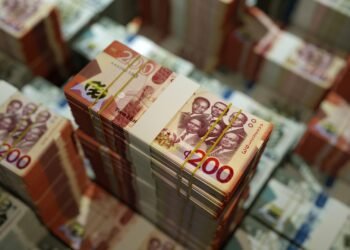The Chief Executive Officer of GoldBod, Sammy Gyamfi, has announced a decisive shift in the agency’s operations, committing to transact business exclusively at interbank foreign exchange rates moving forward. The announcement comes in the wake of widespread public criticism over revelations that the agency had been trading gold at black market rates far above the approved Bank of Ghana levels.
GoldBod, Ghana’s official body for regulating gold trade, came under fire after it was disclosed that the agency had been purchasing gold at over GH¢12 per US dollar—significantly higher than the official Bank of Ghana interbank rate of GH¢10.30.
“Gold has always been bought in the local Ghanaian market based on the informal retail forex rate, popularly called the ‘black market’ rate, since time immemorial.”
Mr. Sammy Gyamfi, Chief Executive Officer of GoldBod
The controversy erupted following a post by IMANI Africa Vice President, Bright Simons, who raised concerns on X (formerly Twitter) about GoldBod’s role in perpetuating the use of black market rates in Ghana’s gold sector.
Responding to the allegations, Mr. Gyamfi acknowledged that GoldBod had indeed engaged in transactions at these unofficial rates but defended the decision as a strategic response to intense market pressures.
“When I assumed office as Acting Managing Director of the PMMC on 22 January 2025, gold was being bought by all market players, including public and private entities, at a black market rate of about GH¢16.
“What GoldBod has sought to do is to change this black market buying phenomenon, which is the primary source of forex trading losses by the Bank of Ghana, MIIF, and other responsible traders.”
Mr. Sammy Gyamfi, Chief Executive Officer of GoldBod

Mr. Gyamfi explained that the gold trade in Ghana has long been dominated by informal pricing systems, making it difficult for official institutions to enforce the interbank forex rate without losing ground to illicit actors.
“Due to the lack of permanent market regulatory systems, GoldBod was, in the last two weeks of June 2025, compelled to raise its buying rate back to black market levels.”
Mr. Sammy Gyamfi, Chief Executive Officer of GoldBod
He argued that this step became necessary as smugglers and hoarders were aggressively offering higher prices for gold in the local market, leading to massive outflows and putting responsible traders at a disadvantage.
“This was to combat extreme competition from smugglers and hoarders who were taking undue advantage of the wide disparity between the interbank rate (GH¢10.30) and the black market rate (over GH¢12).”
Mr. Sammy Gyamfi, Chief Executive Officer of GoldBod
Commitment to Reform

Despite these challenges, Mr. Gyamfi pledged that GoldBod will now strictly transact at the official interbank forex rate. “This is the real challenge we face in our bid to keep the local buying rate at interbank levels and prevent trading losses,” he said.
Acknowledging the uphill task ahead, he assured Ghanaians that efforts are underway to enforce stricter regulatory oversight and curb the influence of smugglers.
“We hope to sustain the local buying rate at interbank levels and make it the norm.
“Our taskforce will intensify enforcement of regulatory functions over the local gold market and help reduce price disruptions caused by smugglers and hoarders.”
Mr. Sammy Gyamfi, Chief Executive Officer of GoldBod

Analysts argue that GoldBod’s commitment to aligning with interbank rates could play a pivotal role in stabilizing Ghana’s forex market and reducing the burden on the central bank. However, the effectiveness of this strategy will depend largely on the agency’s ability to outmaneuver entrenched smuggling networks.
Ghana is Africa’s largest gold producer, and the trade contributes significantly to the country’s foreign exchange reserves. However, smuggling and black market pricing have undermined the government’s ability to harness the full economic potential of this strategic resource.
GoldBod’s success or failure in implementing interbank pricing could influence not only gold sector revenues but also Ghana’s broader efforts to stabilize the cedi and curb illicit financial flows.
While the CEO’s response signals a bold attempt to reform Ghana’s gold trade, the road ahead remains fraught with challenges. Sustained enforcement and cooperation with other state agencies will be key to overcoming market distortions.
READ ALSO: Inflation to Fall Below 10% by September, Beating Government Timeline




















